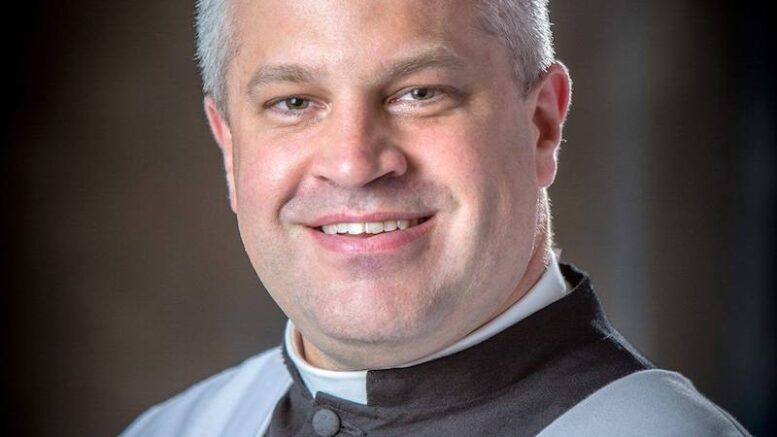I grew up Catholic, and I was familiar with the exchange between Christ and His disciples in which he asks this pivotal question: “Who do you say that I am?” (cf. Matthew 16:13-20) I must admit, as a youth, I wasn’t particularly blown away by Peter’s answer. “You are the Messiah / Christ / Anointed One, the Son of the living God” (depending on translation).
When I heard this passage in church, it had lost something of its significance. After all, Peter’s answer is the reason I was in church to begin with. By that time, I knew the Christian story, and, most importantly, how it ended. When Peter spoke those words, it was the first time, as the story was still unfolding.
There are different kinds of questions. Consider two similar ones. “Who do you think you are?” We might ask this of a customer service person whose attitude seems to follow from the sentiment that the customer is always wrong, or a driver who cuts us off on the highway, one who drives as if crowned the king of the road. Such a question is not really a question, is it? It is a rhetorical question, more like a statement. The question points out that the other person’s actions are not proper for the situation.
On the other side, one might ask, “Don’t you know who I am?” To ask this question reveals something. It betrays the interior state of a person who stands on one’s position or office. Here, we might think of politicians or “social media influencers” or even clergy: people who suffer the spiritual malady of being so full of themselves that they think they deserve special treatment.
“Who do you say that I am?” Christ’s question bears none of these marks. He was not criticizing His disciples. He was not standing on His divinity. He was, rather, inviting a response. Of all humanity, He was with those who were most familiar with His teaching and miracles. They had chosen to follow Him, not knowing where He was leading. He was inviting those who knew Him best not to predict the future, but to discern His identity. Peter did, with divine assistance.
When we encounter this question for the 3rd or the 13th or the 30th time, we risk losing the significance of the answer, as I did in my youth. The wonder of the Word of God is that it is not just history, but it speaks to us here and now; Christ was not just asking the disciples in the region of Caesarea Philippi, “Who do you say that I am?” but he is also asking us. We are His 21st century disciples, who know Him best. This question is not of the rhetorical sort. Nor is it revelatory of Him. It is, however, a good question, one that deserves our response.
If Christ is merely a good example, that answer to His important question places no claim on our lives. We can seek out self-help gurus or professional mentors who have accomplished much, and we do well to listen to their advice and experience. But we can still freely choose whether to follow their teaching or not. It’s easy to rationalize it: we observe the many circumstantial or cultural differences between their historical experiences and our current situation. We receive their counsel with a polite smile and nod, but are not compelled by our gurus or mentors to act likewise or even change in the least way. In the end, we are free to ignore them.
However, if Christ is God, as Peter said, then that answer does place a claim on our lives: it demands that we live our lives accordingly. For one thing, as I said above, Peter’s answer is the reason we go to church. That is not the end of the matter: the answer should reverberate in our lives in big and small ways. Ask, “Are my actions consistent with my belief of Who Christ is?” Consider, “Is my church attire more appropriate for the worship of God or for a self-help seminar? When someone in need asks for my help, is my response like the good Samaritan?”
Each Christian would do well to ponder how to answer Christ’s question. Re-read Matthew 16:13-20, slowly. Take some time to imagine yourself at Christ’s feet with the other disciples. He asks that question, “Who do you say that I am?” He turns, and amid the group looks you in the eye. What is your response?



Be the first to comment on "A Pastor’s Thoughts: Who do you say that I am?"